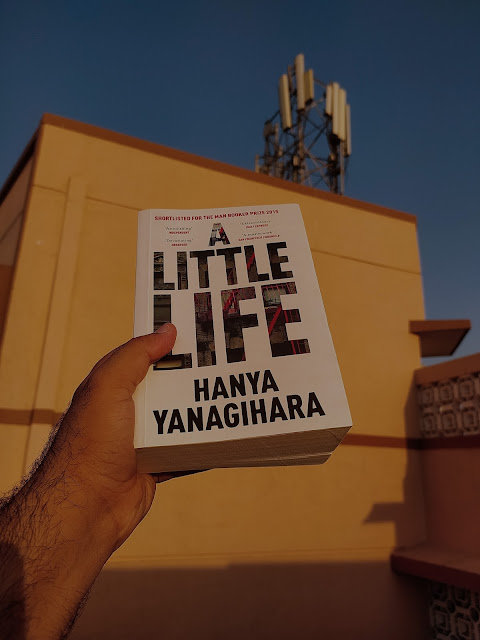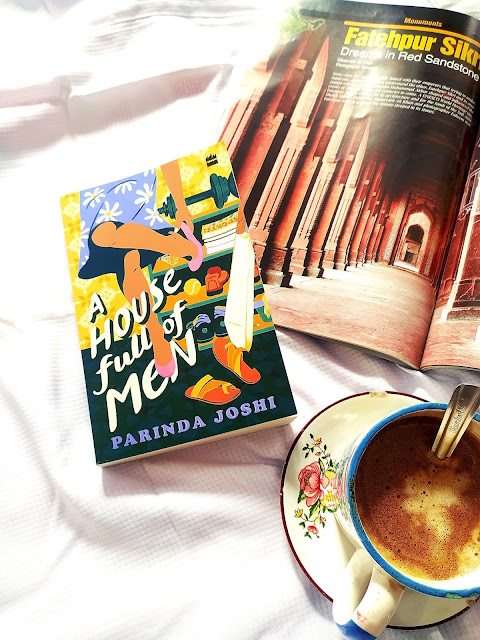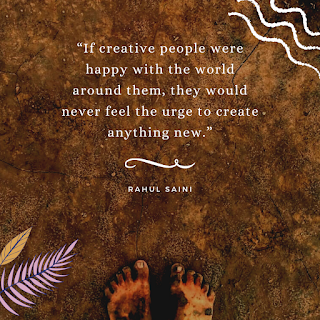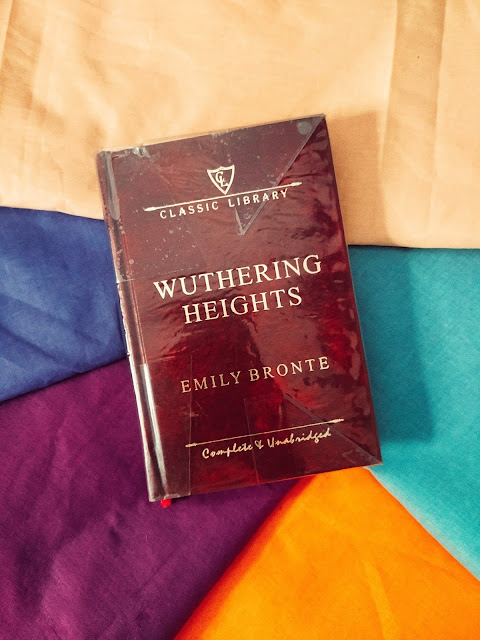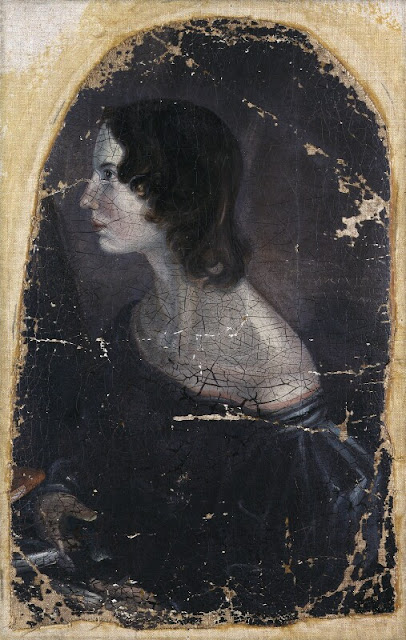As you start reading, you're happy to know the characters and you appreciate the relationship they share with each other and the friendship, affection, care, and support. Their origins are exposed to you, where they are coming from, some of them simple to understand and the others, complex. You're told of their current struggles, finding a footing in their respective careers, regarding their identity, their altering relationships as they cannot live together anymore and grow apart. Years go by, Thanksgiving after Thanksgiving and they eventually establish prominent positions in their fields.
Meanwhile, there comes a turning point in Jude's life when he is adopted by Harold. Things turn grave from now onwards as these changes and events keep reminding us that life is difficult. Jude suffers a lot because of his leg injury, the reason behind which is yet to be revealed and his traumatic past, only the slightest details of which have been revealed yet. Then comes JB's addiction and how the group literally falls apart. Willem and Malcolm also have their own troubles but now the focus narrows down on Jude's life.
At some points, I felt like I could relate to Jude at many different levels, not to the level or extent Hanya has heightened the stakes and circumstances, but very basic level and I would agree with his perception of the world and the people in his life and his relationship with them and I felt terrified. She has made it so raw and real that you cannot imagine these things outside of your own reality. The episodes I could relate with, which is not a problem anymore thankfully. And whenever there was the 'cutting' scene, after I'd stopped reading, I'll watch my own hands and wrists as if it would have been replaced with Jude's and I'll cover them and wrap arms around myself. And the next bathroom trip wouldn't be easy as you can't brush off these memories that would linger for some time before you distracted yourself. But then you get accustomed to it. I got accustomed to it and accepted Jude's life as it is.
I loved how Yanagihara announced most of the shocking, horrifying, traumatic events way before they'd take place in the novel. You'll read a line, a sort of advanced notice or forewarning and you'll know how this is going to end. One example is 'He knows Caleb hates his walk' or 'The First time Caleb hit him.' She always lets you choose whether you'd want to continue or not. Once you're past this chapter, there's no going back, things have changed and it only gets worse even if she promises a little relief in 'The Happy Years'. By the end of 'The Axiom of Equality', I imagined tearing apart the book and its pages and drowning it in the water tank and flinging it from the terrace to some unknown terrain that it wouldn't return to me. But I knew, as much as I hated it, I loved reading it too, in fact, more.
I wanted to know what 'the home' was and who this Dr. Traylor was. And this explanation wasn't too far from where I stood. In the meanwhile, the relationships changed, and everyone was around again. Yanagihara portrayed so well, the situation of Jude, how he felt about everything, how a person thinks after going through what he'd gone through and enduring so much of it. For me, it couldn't get more real than this. Still, now, because of his relationship with Willem, and for Harold, Jude tries even harder to not just survive but do his best at living, the extreme he could touch like he reaches the highest sound frequency, at which it becomes the constant silence. And then comes Harold's point of view, how he discovers gradually what Jude meant when he said he'd be disgusted to learn who he was, rather what he is. That he really thought he deserved this all that he still believed those people, his tormentors, after all. In this particular Harold's narrative, you go through this pain all over again.
Then there are some events you could have never expected to arrive without warning, they hit you suddenly on the face like a slap and you're left dumbstruck. This happens at the end of 'The Happy Hours', still you can't swallow it. I had read the previous 60 pages in one sitting and I tried to continue. I started reading 'Dear Comrade' still unable to accept what had happened. Then this line— 'he goes first to Willem's side of the closet, which he still has not emptied.' and I just couldn't continue reading further. I put aside the book and tried to let the fact sink in and as the night was approaching, I made up my mind that I'll be finishing the remaining 90 pages that night only no matter what. I got over the fact that Willem was gone, nothing can be done, but what about Jude after him? It was painful but a few pages after that I learned none of them survived, not Malcolm, not Sophie. And the dams burst open at the mention of it. I could've kept crying but I needed to get this done with and I wiped away my tears and took a swig from a water bottle and continued.
My face, my cheeks and my head were hurting as I tried to control my emotions, to keep myself from crying because I wouldn't be able to read then. It became a slippery hill from then on, at regular intervals there would come stumbling stones and I will be knocked down. I would fall, I would cry and then get up again and resume descending towards the end we had all anticipated. There are more such stumbling blocks in the last 'Lispenard Street' and because narration has returned to Harold, who is conversing with his son's partner—Willem, it is obvious that it's done. On every page, you expect this to happen like this is the moment and then finally! I gathered myself quickly and resumed. And I read, 'I didn't know Andy would be dead three years later of a heart attack' and I lose it. This destruction is beyond repair. There could be nothing worse than that and you see Harold and Julia left alone, only JB to their company, them reading eight long pages of Jude's confession of what had happened to him.
Do I recommend this book? Most definitely. Not to everyone though. There are enough trigger warnings you can find on Goodreads. And as I said earlier, you will know what to anticipate and you will be forewarned. So it will be completely in your hands whether to continue or not. But yes, mere curiosity and 'want' to cry wouldn't suffice, it'll demand much more effort.
Am I going to re-read it? Yes, of course. I have kept the book very clean for the type of book it is. It can be studied with different readings because it has a lot of content on many subjects. I'll use pencils to underline text, I'll use sticky notes to annotate, I'll use highlighters, etc. That will be my second reading.
Thanks a ton to the person who recommended this book to me: Raul Jeremiah Rai. Wishing him success in his UPSC CSE journey.
